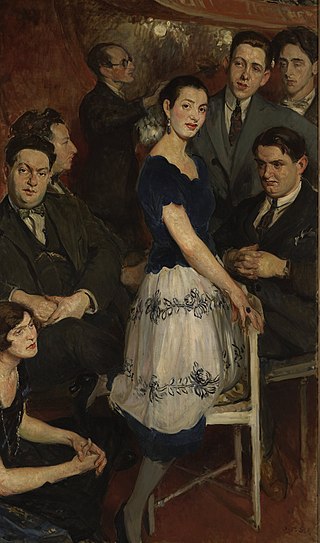Related Research Articles

"Les Six" is a name given to a group of six composers, five of them French and one Swiss, who lived and worked in Montparnasse. The name, inspired by Mily Balakirev's The Five, originates in two 1920 articles by critic Henri Collet in Comœdia. Their music is often seen as a neoclassic reaction against both the musical style of Richard Wagner and the impressionist music of Claude Debussy and Maurice Ravel.
Paul Nougé was a Belgian poet, founder and theoretician of surrealism in Belgium, sometimes known as the "Belgian Breton".

Adolphe-Abraham Samuel was a Belgian music critic, teacher, conductor and composer.

La cheminée du roi René, Op. 205, is a suite in seven movements for wind quintet, composed in 1939 by the French composer Darius Milhaud. The title alludes to a Provençal proverb playing on words for 'fireplace', 'chimney' and 'promenade': the 15th-century King of Sicily René d'Anjou is said to have enjoyed walks in the winter sun of Provence.

Albert Dupuis was a Belgian composer.

The Belgian Prix de Rome is an award for young artists, created in 1832, following the example of the original French Prix de Rome. The Royal Academy of Fine Arts Antwerp organised the prize until 1920, when the national government took over. The first prize is also sometimes called the Grand Prix de Rome. There were distinct categories for painting, sculpture, architecture and music.

Émile Louis Victor Mathieu was a Belgian music teacher and composer of classical music.

Alberto Neuman was an Argentine pianist.
Éliane Reyes is a Belgian pianist who is known both as a soloist and as a chamber musician. She is also currently Professor of Piano at both the Conservatoire royal de Bruxelles and the Conservatoire de Paris. In 2016, she was designated a Knight of the Ordre des Arts et des Lettres, by the French government.
Schott frères was a Belgian sheet music publishing house that operated between 1823 and 2006.
Charles Scharrès was a Belgian pianist, composer, and pedagogue.
Pierre Georges Édouard Bartholomée is a Belgian conductor and composer.

Maurice Kufferath was a Belgian music critic, librettist, cellist and conductor. A director of the Théâtre de la Monnaie in Brussels from 1900 to 1919, he was considered an icon of the music scene in Belgium.
The Laurent Halleux collection is the donation, to the library of the Royal Conservatory of Brussels, of printed scores and manuscripts from the Belgian violinist Laurent Halleux (1897–1964), by his daughter, Suzanne Keller-Halleux.
Claude Rostand was a French musicologist, musicographer and music critic.
Billy Eidi is a French classical pianist of Lebanese background.
Charles Leirens was a Belgian photographer and musician. He started giving concerts in public at the age of eight and after studying composition in college composed music for a time. During World War I he worked for the Belgian services in London. In 1928 he became the first Director-General of the Palais des Beaux-Arts, Brussels, creating La Maison d’Art in December 1933; cofounded the Revue Internationale de Musique (1936–1952). He also made photographic portraits of celebrated artists from the 1930s to the 1960s. He spent most of World War II in the United States, teaching, writing and exhibiting his work. After the war, he traveled as a photographer to Puerto Rico and Morocco, before returning to Belgium, remarrying and continuing to perform concerts and exhibit photographic work.
Events in the year 1835 in Belgium.
Events in the year 1858 in Belgium.

Henri Borguet was Belgian entrepreneur who built in Belgium the first steam passenger railway in continental Europe, between Brussels and Mechelen.
References
- ↑ Godelieve Spiessens and Sylvie Janssens. "Collaer, Paul." In Grove Music Online. Oxford Music Online, http://www.oxfordmusiconline.com/subscriber/article/grove/music/06100 (accessed November 22, 2010).
- ↑ Paul Collaer (1891-1989), by Ferdinand J. de Hen, in Ethnomusicology34, #3 (Autumn 1990), pp. 423-424, JSTOR 851627.
- ↑ The Elsa and Paul Collaer Collection at the Music Division of the Royal Library of Belgium